New KTCO: Checking In
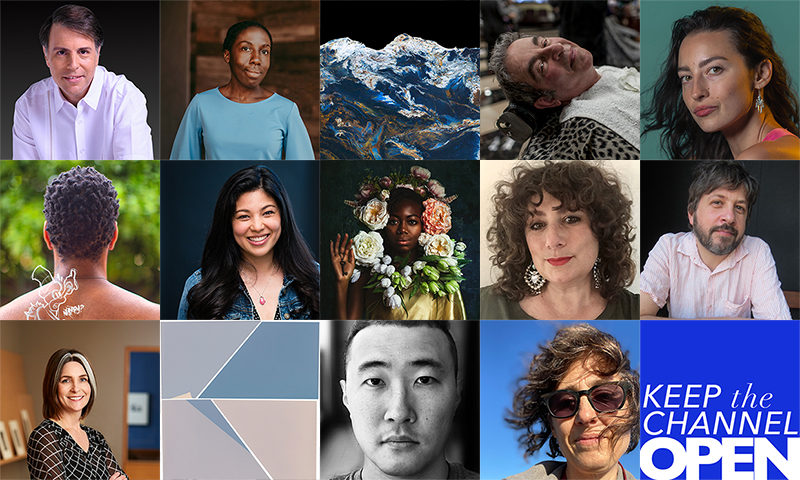
Since the election in November, the news has been full of terrible things—as, indeed, it has been for many years, but the terribleness continues to accelerate. One of the things that has been on my mind the most in the past month is how important community and connection are during difficult times. How it’s the people who we know and who know us who end up sustaining us.
In January, it will be nine years since Keep the Channel Open started, and in that time I have talked with a lot of people. So, taking a page from Rachel Zucker’s “Global Roll Call” episodes of Commonplace, which she produced during the depths of the pandemic lockdowns in 2020, I reached out to past KTCO guests and invited them to give some updates about where they are, how they’re doing, and who they’re thinking of right now. I’m pleased to be able to share the responses with you.
Wherever you are, I hope you’re safe and healthy, that you’re thriving. Wishing you the best possible 2025.
New KTCO: Perry Janes
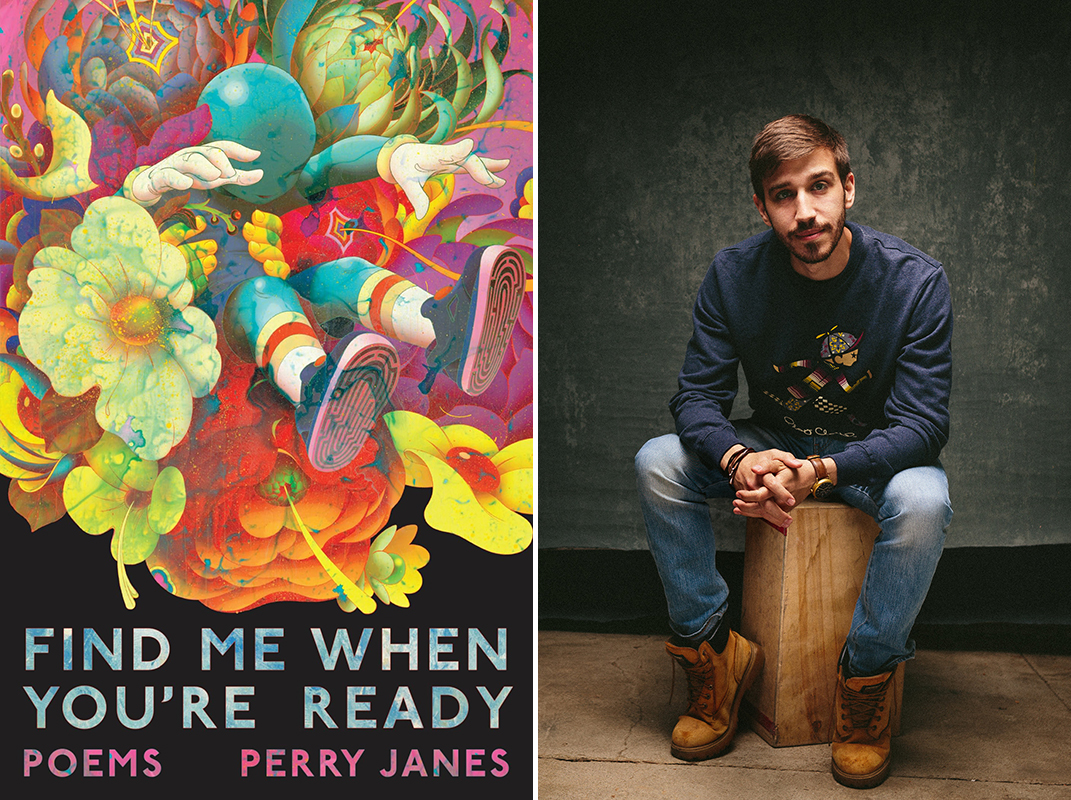
The thing that struck me the most when reading Perry Janes’s debut poetry collection, Find Me When You’re Ready, is not that it contains poems about trauma. Rather, it’s that the poems about the speaker’s trauma make up such a relatively small part of the collection. The rest of the collection doesn’t ignore what came before, but rather than dwelling in the moment of trauma, the later poems allow the speaker to move on and begin to heal. That’s just one of the things that Perry and I talked about in our conversation, which I hope you enjoy.
New KTCO: Sarah Gailey
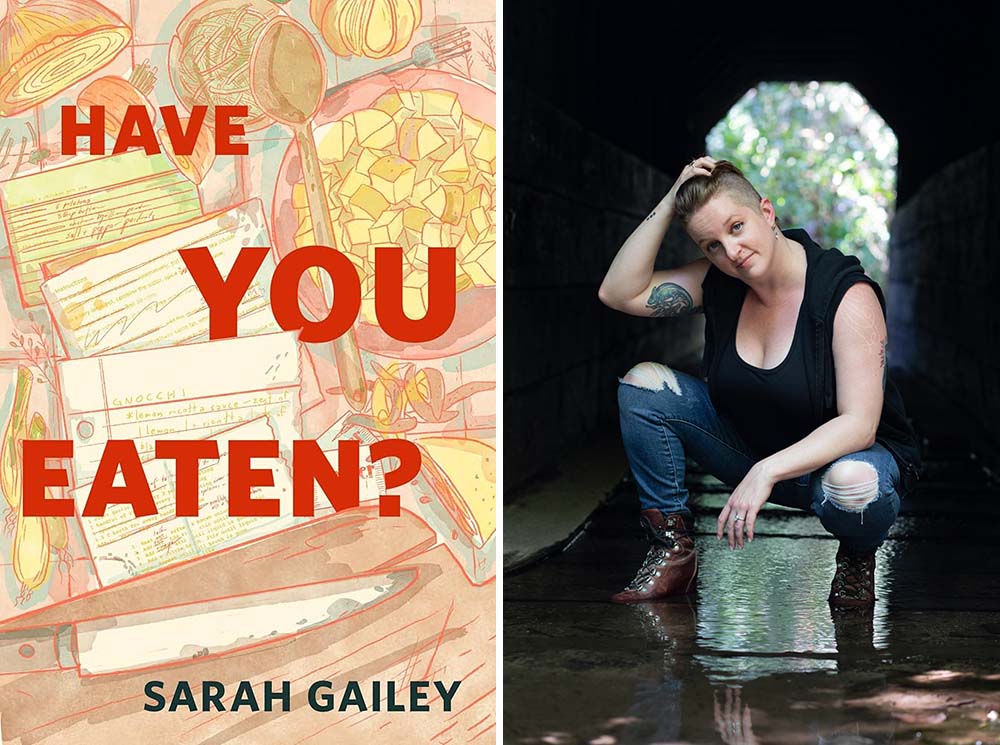
I am always so happy when I get the chance to talk with Sarah Gailey. They’re now officially part of the Four Timers Club on KTCO (along with Rachel Zucker), and I couldn’t be more pleased about it.
For this latest conversation, we talked about Sarah’s new novella, Have You Eaten?, which follows a group of four young, queer friends as they traverse a collapsing America, and which asks the question “What does it look like to take care of each other in a time of crisis?” It’s a question that feels so urgent right now, and for a while now. Sarah and I talked about the experimentation in fiction, vine-ripened tomatoes, cooking as an act of care, and what apocalypse means. And in the second segment, they almost made me cry by being nice to me (though they would vociferously deny that “being nice” was what they were doing, and fair enough), and then we talked about sin-flattening and high-control groups, and the necessity of interpersonal repair.
New KTCO: Rachel Edelman
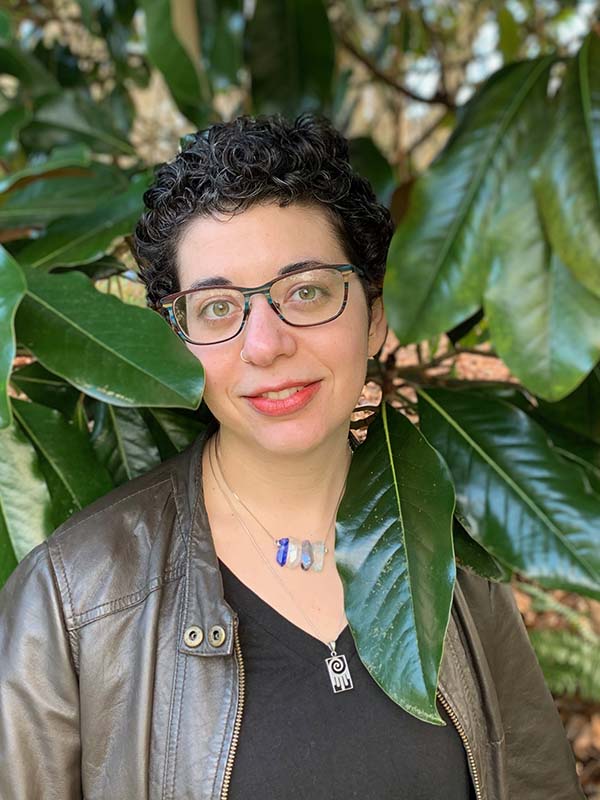
I had a chance to read Rachel Edelman’s debut poetry collection, Dear Memphis, this past spring, and I was struck by how familiar the feelings and questions of these poems felt to me. Questions about what it means to be from a place where you and your people are held apart. About what heritage and inheritance mean, about the difference between exile and diaspora and migration. About being part of a minoritized, oppressed group that nevertheless experiences privilege, and sometimes participates in the oppression of others. About what home means. For Edelman’s speaker, these questions arise from being Jewish in the South. For me, similar questions arise from being Japanese American. It’s not the same, of course, but the way our experiences seemed to rhyme intrigued me, and led to a wonderful conversation about the book, about self-awareness, and about connection through letter-writing.
New KTCO: Jennifer Baker
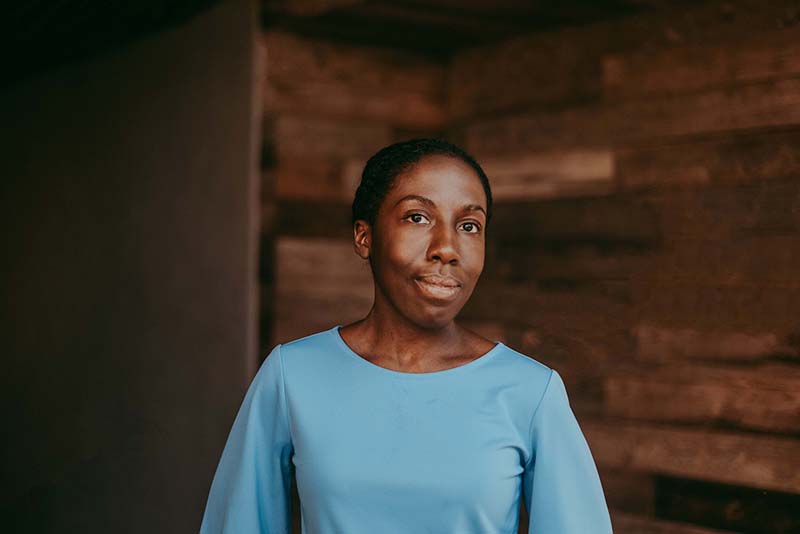
Jennifer Baker has been one of the people I’ve looked up to for a while as a model of literary citizenship, so when I heard that she had a YA novel coming out, I immediately pre-ordered it. Forgive Me Not is a powerful and insightful book about the American carceral system, as well as a moving coming-of-age and family story.
The story follows Violetta Chen-Samuels, a high school student in New York City whose life has gone off the rails, culminating in the death of her younger sister in a drunk driving accident that Violetta caused. In this version of New York, juvenile offenders are given the option of enduring Trials—a sort of codified form of “tough love”—instead of incarceration. But despite being intended as a reform of the criminal justice system, the Trials, too, are harsh and retributive. Forgive Me Not delves into the harms of our carceral system, and how race, class, gender, and other systems of marginalization interact with it, and ultimately the question of forgiveness and punishment.
Jennifer and I had a great conversation about how she approached writing her characters, why it was important for her to focus on systems rather than individual guilt or innocence, and how to write about serious topics for younger readers.
New KTCO: Rachel Lyon
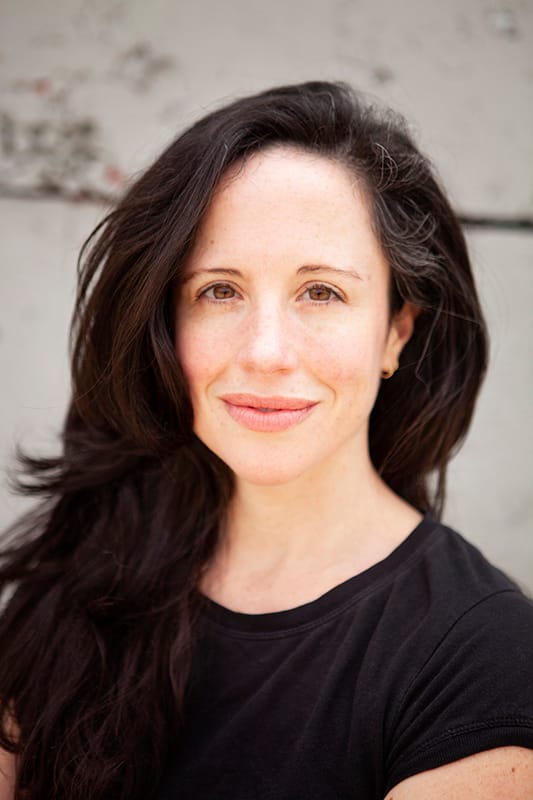
I’m pleased to welcome writer Rachel Lyon back to KTCO for a conversation about her latest novel, Fruit of the Dead. It’s a compelling and (I thought) chilling contemporary retelling of the Persephone myth, told from the perspectives of Cory, a young woman seduced by extreme wealth and privilege, and Cory’s mother, Emer, who has to go looking for Cory after she seemingly disappears one day. The story is about addiction and sexual assault, about power and class, about mothers and daughters, and about what it means to have agency and to come of age. I thought it was incredible.
New KTCO: Amanda Marchand
I had the pleasure of being in the audience for Amanda Marchand’s Second Sight lecture at this year’s Medium Festival, back in May. I was, of course, immediately struck by the simple and elegant compositions of her lumen prints (an example of which is shown above—her image “Roseate Tern”), but it was her process that truly fascinated me. I’m always interested in the separation between what can and can’t be seen in a photographic image, and in her Lumen Notebook series, Amanda mostly uses books to create the photograms. And not just any books, but specific books that have specific meaning to her. It turns out that both she and I have a fascination with the way that language and image interact, so it was a real treat getting to pick her brain for this episode.
Here are some handy links for the episode:
In the course of our conversation, we mentioned several of Amanda’s books, which you can purchase:
- The World is Astonishing with You in It (2021, self-published, contact artist to purchase: amandabethmarchand@gmail.com)
- Nothing Will Ever Be the Same Again (2019, Datz Press)
- Night Garden (2015, Datz Press)
Some additional resources you may enjoy in conjunction with today’s episode:
- Amanda’s Medium Festival lecture is a great overview of her work and process.
New KTCO: Sarah Hollowell
I have been a big fan of Sarah Hollowell both as a writer and as a person for many years now. She's one of my favorite presences on Twitter and with the publication of her debut novel, A Dark and Starless Forest, she's become one of my favorite YA writers as well.
There's a lot that I love about the book. Sarah excels at creating an atmosphere of magic that is full of wonder while also feeling eerie and dangerous. In terms of representation, this book also features a fat protagonist as well as queer characters, which I very much appreciate in a YA novel. Mostly, though, it's just a well-paced and extremely satisfying story.
In our conversation, Sarah and I talked about her writing process, about abuse dynamics, about fan fiction, and about how she engaged with anger and violence in A Dark and Starless Forest. In the second segment, we talked about the Alpha Young Writers Workshop, how it was such a formative experience for her and why she loves working with teens. I hope you enjoy the episode!
Here are some handy episode links:
And some purchase links for the book! As always, I recommend picking it up from your local independent bookstore, but if you don't have one of those available, here are some other options:
Some additional resources that you might enjoy in conjunction with today's episode:
- Sarah's short story "Crow's Eye" was featured in episode 2 of LikeWise Fiction. It's a great example of her short fiction and has a very similar style to A Dark and Starless Forest.
New KTCO: Ayesha Raees
When I first started reading Ayesha Raees's debut book of poetry, Coining a Wishing Tower, I had a certain feeling of being unmoored. The form of the book (fragments that might be fable or might be prose poetry) and the tone (which varied between the fragments, some strange and Borgesian, others quite concrete) all contributed to that. But the further in I got, the more it began to cohere into an experience that, if I couldn't fully articulate what it was doing or how, was nevertheless potent and resonant. What was clear at that point was that this was a book that I'd need to return to more than once, and which would reward me if I did with new insights. That turned out to be entirely true, and I discovered threads about loss, about grief, about religion and ritual, about belonging and separation, and of a certain optimism in the face of devastation. Needless to say, I was pleased to get to talk with Ayesha for this week's episode.
Here are some handy episode links:
And some purchase links for the book! As always, I recommend picking it up from your local independent bookstore, but if you don't have one of those available, here are some other options:
Some additional resources that you might enjoy in conjunction with today's episode:
- This interview at CutBank between Ayesha and Josh Wagner was an interesting starting point for me in thinking about how I wanted to approach my conversation with her.
- Ayesha's Vimeo page has a number of examples of her hybrid work, combining image, text, and sound for a fascinating artistic experience. I particularly recommend her four-part video "A Manual (or memoir), For Learning (or knowing), About a Tentative (or fleeting), Ticking thought Machine (or being)."
New KTCO: Anahid Nersessian
I tend not to read a whole lot of nonfiction books—for the most part, if I'm going to read criticism then I tend to read it as separate essays, and usually online. But Anahid Nersessian's Keats's Odes: A Lover's Discourse was such an edifying and resonant experience to read. Not only did she teach me a lot about a set of poems that I hadn't thought about in years—John Keats's Great Odes—but moving through the essays in this book is a personal narrative about a relationship that, although oblique, I found both emotionally moving and intellectually fascinating, particularly in how that personal narrative functions with the more straightforward critical portions. I really enjoyed having this conversation with Anahid, and I hope you enjoy it, too.
Here are some handy episode links:
And some purchase links for the book! As always, I recommend picking it up from your local independent bookstore, but if you don't have one of those available, here are some other options:
Some additional resources that you might find interesting in conjunction with this conversation:
- Anahid has a new piece out in the New York Review of Books, titled "Catastrophic Desire," which is about the Iranian poet Forough Farrokhzad.
- This conversation between Anahid and her friend, the actor Zoe Kazan, about the book was one of the first sources I checked out to help shape this conversation, and I thought it was pretty enlightening.
- Similarly, this conversation between Anahid and Michael Robbins was very useful.
- I also very much enjoyed reading Anahid's NYRB piece "Love for Sale," about Eva Illouz’s The End of Love. Reading someone's critical work, I find, always gives an interesting perspective into how they think.
Happy listening!